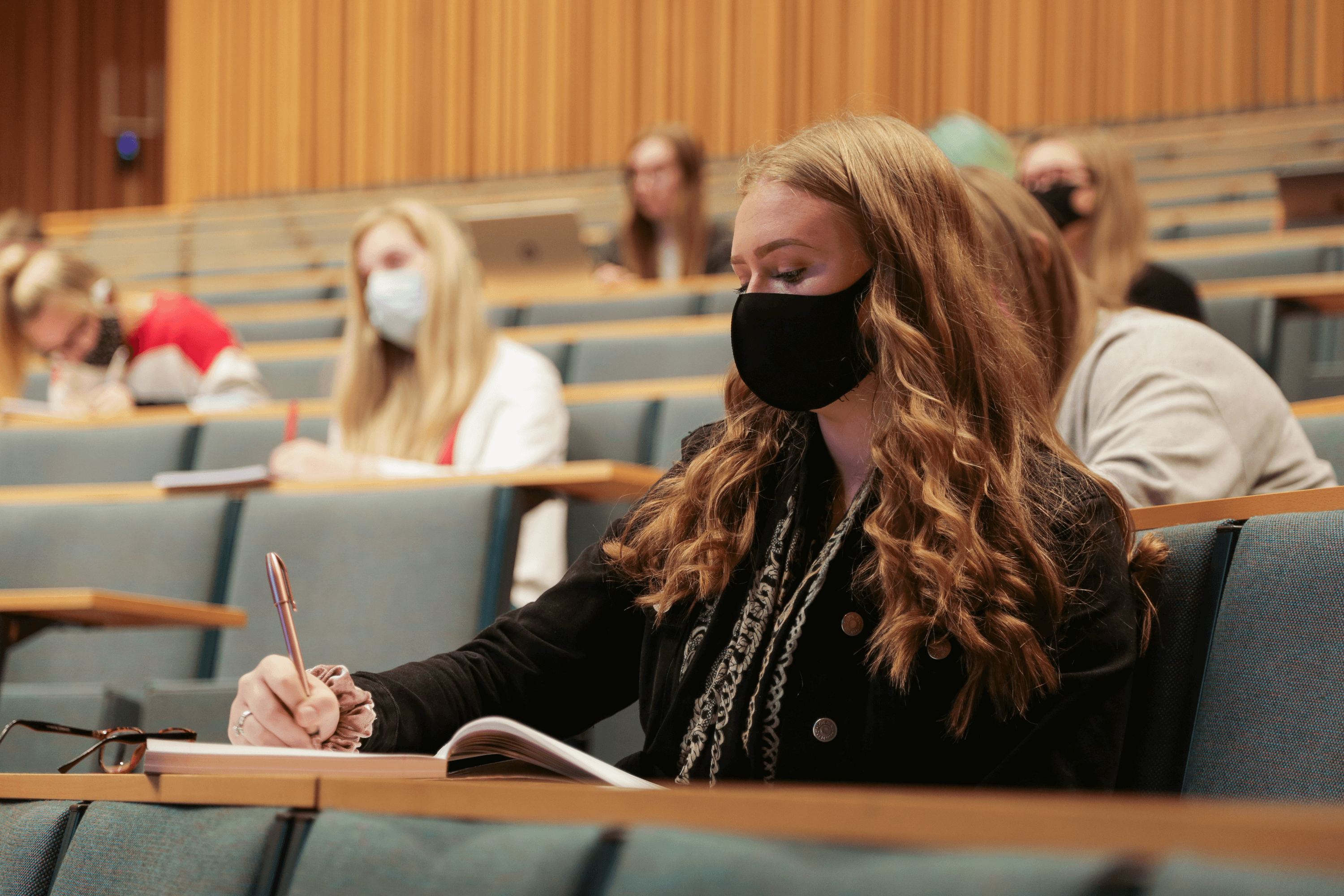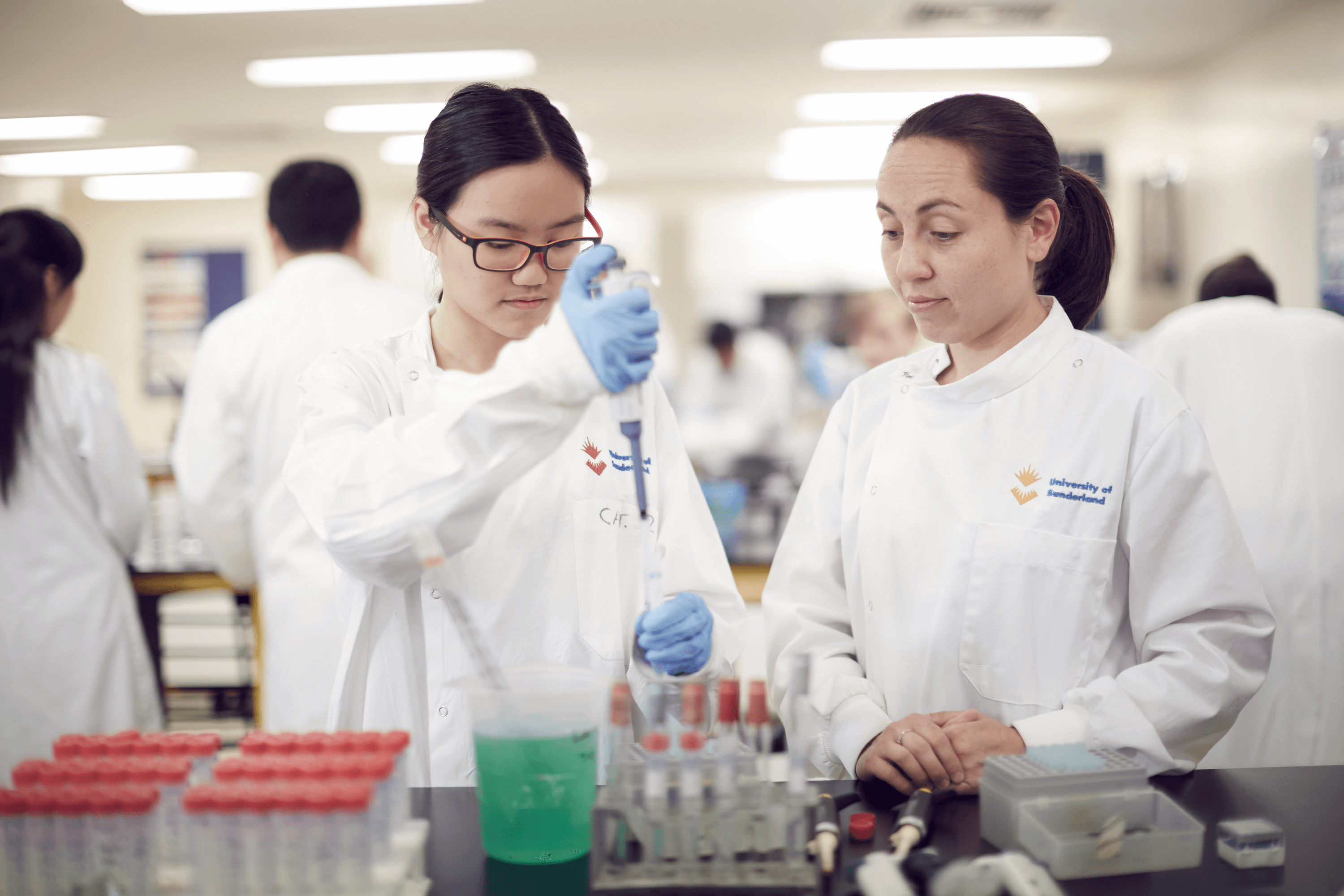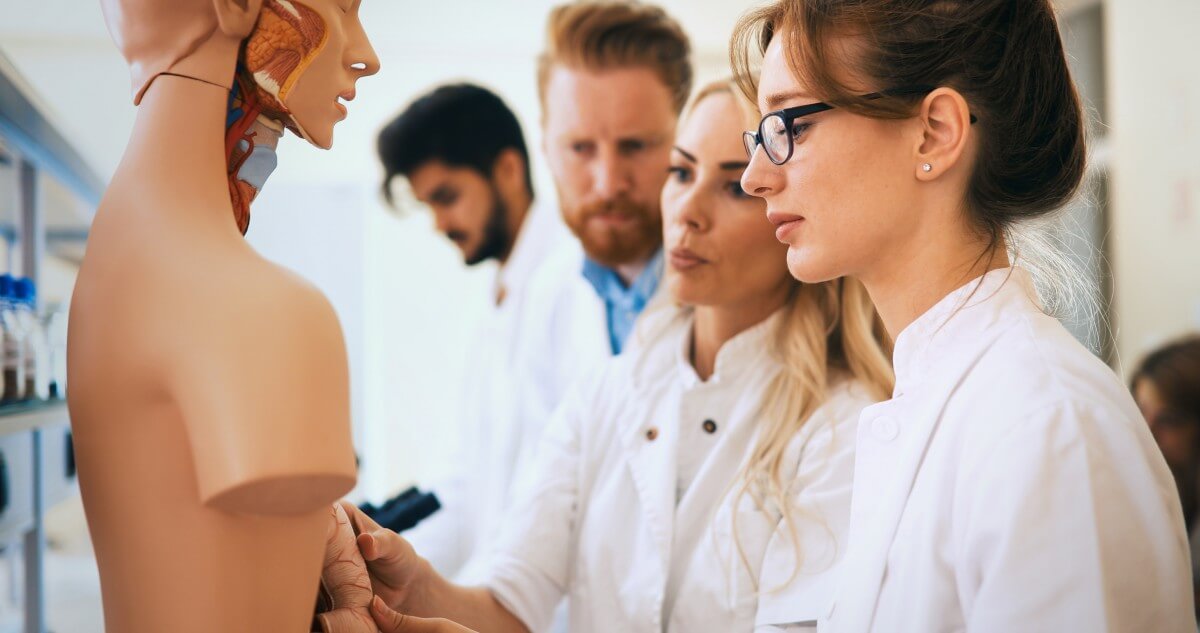When the University of Sunderland’s Pharmacy Department was first established in September 1921, there were only three fee-paying students and 25 ex-servicemen. Facilities were beyond paltry: there was just one double-sided bench. No matter to Hope Constance Monica Winch, a trailblazer then who would become the discipline’s first lady.
Winch envisioned it to be the finest pharmacy department in the north-east of England. Even after her sudden, tragic death in 1944, her vision and legacy lived on.
Fast forward to 100 years later, the university has produced tens of thousands of heroes — or some might call them pharmacy graduates — who are sharing their expertise, support and assistance to people in all corners of the world. In March 2018, Sunderland also became one of only five new medical schools, established to address the regional imbalance of medical education places across England and to widen access to ensure the profession reflects the communities it serves.
“The story of Pharmacy and integrated healthcare education and training in Sunderland will continue to evolve with our graduates positively contributing to an ever-developing professional workforce,” shares Head of the School, Pharmacy and Pharmaceutical Sciences, Adrian Moore.
From humble beginnings to international recognition today, Pharmacy continues to be the heart of Sunderland’s growing health sciences and wellbeing provision, with programmes in nursing, paramedic science and medicine on offer.
What began as a single bench in the Chemistry Department soon grew to become the largest Pharmacy Department in the country. This is where students learn how diseases develop; investigate how certain medicines can enhance wellbeing; and explore how the skills and knowledge of drug production relate to the development, design, and evaluation of cosmetic products.
The department offers undergraduate programmes in Pharmacy and Biochemistry as well as postgraduate programmes in Cosmetic Science; Clinical Pharmacy and Drug Discovery and Development. Programmes are continually updated with the latest developments in policy, research and practice.
Sunderland’s four-year MPharm programme develops specialised knowledge and skills in medicinal chemistry, pharmaceutics, therapeutics, clinical management and patient-focused clinical skills. This programme covers topics such as Fundamental Principles of Pharmaceutical Chemistry and Formulation; Cardiovascular and Renal Systems; Central Nervous System and Skin, and more.
The setting? Small seminar groups, practical laboratory classes and dispensing classes. These are complemented by placements and interprofessional learning opportunities, which offer patient contact. Students are put to the test through examinations, time-constrained tests (some web-based), assignments, essays, reports and presentations.
“Patient, Carer and Public Involvement (PCPI) participants are used in the course, which gives us the opportunity to meet patients with the conditions we are learning about, understand their patient journey and what we can do in the future,” graduate Paul Sambrooks shares.
Many more features set Sunderland’s MPharm programme apart. Research here has been described as “world-leading”’ by the latest Research Excellence Framework. Graduates achieve success — 97.5% are in graduate-level employment, further study or training within six months of graduating. According to the National Student Survey 2020, the programme recorded an 86% Overall Satisfaction rate.
In the National Registration Assessment, Sunderland students do better than the rest of the country. The pass rate in 2019 was 89.82% which is significantly above the national average of 72.33%
For Sambrooks, however, the programme’s greatest asset was its people. “The academic staff are a diverse team of practicing pharmacists in different sectors as well as scientists,” he explains. “They are very supportive and engage with students to assist them in their progression and development.”

From humble beginnings to international recognition today, Pharmacy continues to be the heart of Sunderland’s growing health sciences and wellbeing provision. Source: University of Sunderland
At Sunderland, Pharmacy students take part in multi-disciplinary learning alongside students from Nursing, Psychology, Paramedic Science and Medicine, which reflects the environment they will work in as future professionals. Abigail Cook ’s favourite part of the programme is the “numerous opportunities for hands-on training, which prepares you for practice,” she shares.
This includes patient contact sessions which allow students to practise and develop communication skills; a mock dispensary where students develop a clinical and legal background of medicines and prescriptions; mock wards which prepare students for the situations they may experience as a hospital pharmacist; and hands-on clinical skills training.
Sunderland graduates are as ready for their careers as they are for the world at large. “The university has enabled me to challenge myself during my course, to get pharmacy and non-pharmacy related internships, to work part-time as a student ambassador, to be a student representative and to also play basketball with the University Women’s Basketball team,” enthuses graduate Dana Qiqieh.
Plus, with Sunderland ranked the second most affordable city in the UK, according to a 2018 “Graduate salaries in the UK” survey conducted by Prospects Luminate, it’s easy to live comfortably here on a budget. As Qiqieh says, “My time at Sunderland was remarkable!”
To find out more about the University of Sunderland, click here.
Follow the University of Sunderland on Facebook, Twitter, Instagram and LinkedIn












